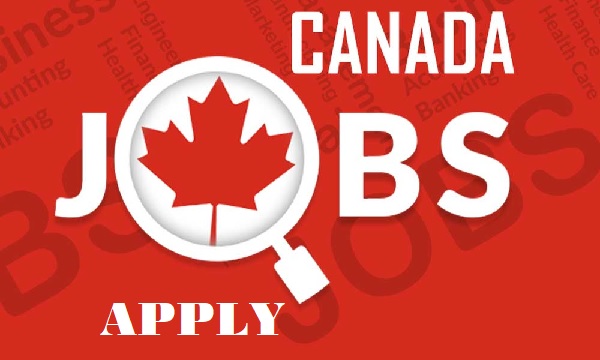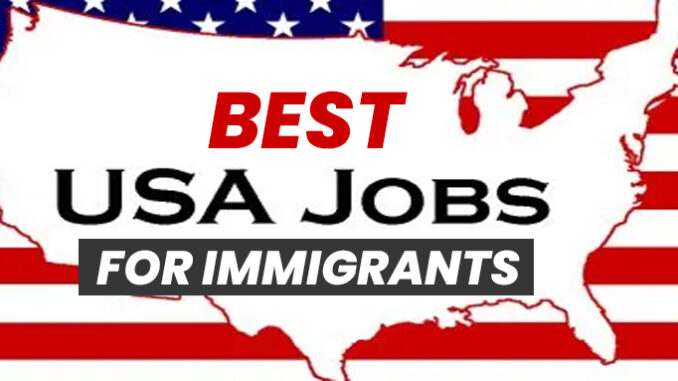If you are considering a new job in the United Kingdom, understanding how visa sponsorship works is essential for your success. Many employers in the UK offer sponsorship options that allow immigrants to work legally. Visa sponsorship can open doors to exciting career opportunities while helping you build a new life in a different country.
The job market in the UK is diverse, with many sectors actively seeking skilled workers. From healthcare to engineering and technology, various industries provide roles that come with sponsorship. You can find positions that match your qualifications, making it easier to start your journey in the UK.
Exploring jobs with visa sponsorship not only boosts your chances of landing a job but also supports your immigration goals. By applying for these positions, you are taking a significant step towards living and working in one of the world’s most dynamic economies.
Overview of the UK Job Market for Immigrants
The UK job market presents various opportunities for immigrants across different sectors. Understanding which industries are in high demand and how immigrant workers contribute to the economy can help you navigate your employment options.
Employment Sectors in High Demand
Several sectors in the UK actively seek immigrant workers. Key industries include health care, construction, and technology.
- Health Care: There is a significant need for nurses and caregivers, especially as the population ages.
- Construction: With ongoing projects, skilled labor is essential, making this sector accessible for migrant workers.
- Technology: The tech industry constantly looks for skilled professionals, particularly in software and data analysis.
These sectors not only welcome immigrant labor but also often provide pathways to sponsorship for work visas. This means you can secure a job and have a chance to become a permanent resident.
Economic Impact of Immigrant Workers
Immigrant workers play a critical role in the UK economy. They contribute to economic growth by filling skill shortages and supporting various industries.
- Contribution to GDP: Immigrants help increase productivity. Studies show that they contribute significantly to the national income.
- Job Creation: Many immigrants start their own businesses, leading to job creation for others.
- Tax Payments: Immigrants also contribute to public services through taxes, helping fund schools, health care, and infrastructure.
Your presence in the workforce enhances diversity and innovation, benefiting not just your employers but also the broader economy.
Sponsorship and Visa Categories
In the UK, various visa categories allow employers to sponsor foreign workers. Understanding these options is crucial for navigating the job market as an immigrant. Here are the primary visa categories you should know about.
Tier 2 General Work Visa
The Tier 2 General Work Visa is designed for skilled workers coming to the UK to fill a position that cannot be filled by a resident worker. To qualify, you must have a job offer from a UK employer who holds a valid sponsorship license.
Key points include:
- Job Offer: You need a confirmed job offer and Certificate of Sponsorship (CoS) from your employer.
- Skill Level: The position must meet the required skill level of RQF Level 6 or above.
- Salary Threshold: The minimum salary requirement is generally £26,200 per year or the “going rate” for the position, whichever is higher.
- English Language: You must prove your ability to communicate in English, showing proficiency in reading, writing, speaking, and understanding.
Tier 5 Temporary Work Visa
The Tier 5 Temporary Work Visa allows foreign nationals to work in the UK for up to 12 months in specific sectors, often through a youth mobility scheme or for charities. This visa is suitable for shorter employment engagements.
Key requirements include:
- Sponsorship: You need a valid Certificate of Sponsorship from a UK organization.
- Categories: There are various categories under Tier 5, such as the Creative and Sporting, Charity Workers, and Government Authorized Exchange.
- Salary Requirements: You must have sufficient funds to support yourself, though exact salary requirements can vary by category.
- Duration: Unlike the Tier 2 visa, Tier 5 usually does not lead to permanent residency.
Intra-Company Transfer Visa
The Intra-Company Transfer Visa allows multinational companies to transfer employees to work at their UK branch. This visa is for workers who already have a contract with the company but need to be relocated.
Important aspects include:
- Existing Employment: You must have been employed by the company for a specified period, usually at least 12 months.
- Job Offer: Your role in the UK branch must be skilled and meet the minimum salary threshold, which is typically higher than for Tier 2.
- Short-Term vs. Long-Term: There are two types of Intra-Company Transfer visas, short-term and long-term, each with different duration and requirements.
- Continuity of Employment: This visa does not directly lead to permanent residency, but it allows for continued employment in the UK.
Understanding these visa categories helps you navigate sponsorship in the UK job market effectively.
Navigating the UK Sponsorship Process
Securing a work visa in the UK involves several key steps. Understanding how to find a job with sponsorship, obtaining a Certificate of Sponsorship, and completing the visa application procedure are crucial for success.
Finding a Sponsorship Job
To find a job that offers sponsorship in the UK, you should start by searching for employers who hold a valid sponsorship license. This license allows companies to hire non-UK workers. You can search online job boards, company websites, and even LinkedIn for these opportunities.
Network with professionals in your field and join relevant groups. These connections can help you discover potential job openings that may not be widely advertised. Once you identify a potential job, check that the employer is listed on the Home Office’s register of licensed sponsors.
Certificate of Sponsorship
Once you receive a job offer, the employer must provide you with a Certificate of Sponsorship (CoS). This document includes a unique reference number and details about your job.
Your employer applies for the CoS through the UK Home Office. This process involves fulfilling specific criteria to demonstrate that the position is genuine and meets the salary requirements.
You must keep this certificate, as it is necessary for your visa application. Ensure that all the details are correct, as inaccuracies could delay your application.
Visa Application Procedure
After obtaining your CoS, you can proceed with the visa application. This usually involves completing an online application form and paying the visa fee.
You’ll also need to prepare documentation like your passport, proof of English language proficiency, and evidence of your ability to support yourself financially.
Submit your application and attend a biometric appointment to provide fingerprints and a photograph. Processing times may vary, so apply well in advance to avoid delays. After approval, you’ll be ready to work in the UK.
Settling in the United Kingdom
When you move to the United Kingdom, understanding the essentials for settling in can help ease your transition. Key aspects include finding accommodation, integrating into the local culture, and accessing public services.
Accommodation and Living Costs
Finding a place to live is one of your first priorities. The cost of accommodation varies widely depending on the city. For example, London is known for high rent, while smaller towns may be more affordable.
You can explore options such as renting a flat or house-share, which can help reduce costs. Websites like Rightmove and Zoopla can assist in your search.
Additionally, consider living costs such as groceries, transportation, and utilities. On average, you might spend around £250-£450 monthly on grocery items, while public transport can cost around £150 per month in larger cities.
Cultural Integration
Cultural integration is essential for feeling at home in the UK. Start by learning about local customs and social norms. Engaging in community events can help you connect with others.
Language can also be a barrier. Consider joining language classes in your area to enhance your communication skills. It is important to practice English regularly.
Moreover, immerse yourself in the local culture by exploring museums, galleries, and parks. Participating in local traditions can foster connections and help you adapt more easily to your new environment.
Accessing Public Services and Healthcare
In the UK, public services and healthcare are significant aspects of daily life. You can register with the National Health Service (NHS) to receive healthcare services. Citizens and residents typically receive care at no or low cost.
To access NHS services, you need to register with a local GP (General Practitioner). This will provide you with essential medical care.
Additionally, familiarize yourself with other public services such as education and transportation. Schools in the UK offer free education for children, and services like buses and trains can assist in navigating your new city.


